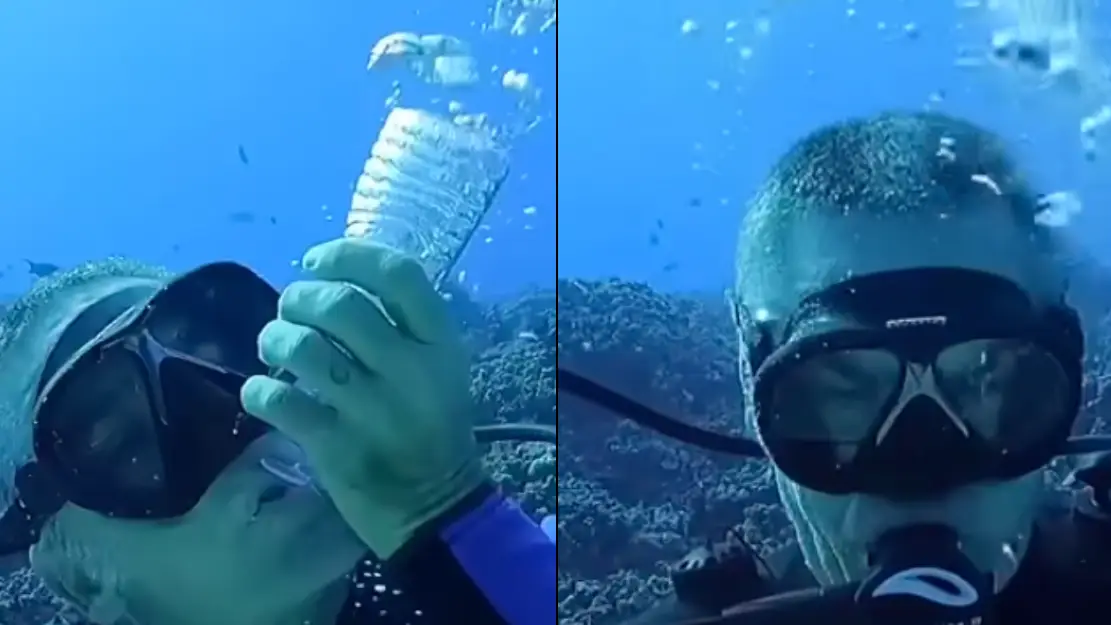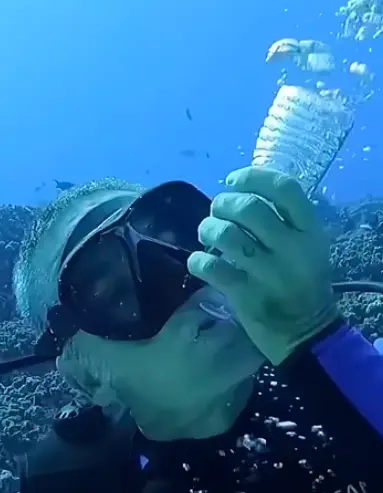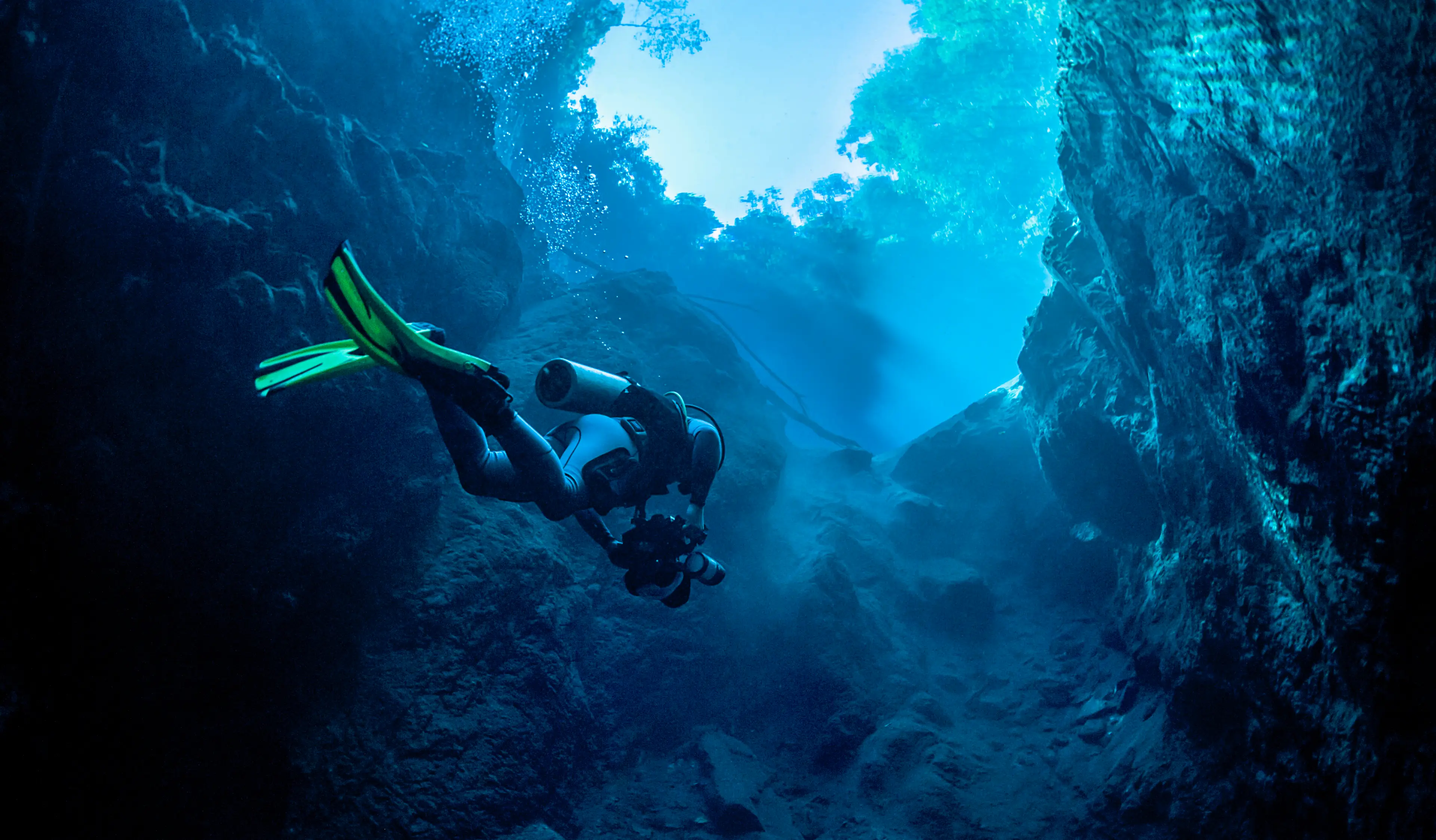
A scuba diver has shared footage of his incredible underwater experiment in a bid to demonstrate how holding your breath in the sea can have deadly consequences.
Benja Iglesis often takes his 13,600 YouTube subscribers along for the ride with him when he heads out for a dip in the deep blue, while sharing all the tips and tricks he has learnt throughout his illustrious career.
He's been an underwater photographer since 1989, so he's certainly spent enough time in the ocean to know what he's talking about, especially as he's also logged more than 6,000 dives over the years.
Iglesis' website explains that he has been to 'every continent, dove both polar circles, has been scuba diving in every ocean and has visited over 25 countries' - and his camera has been his 'constant companion' throughout it all.
Advert
As well as all this, the snapper from Chile is also certified Professional Association of Diving Instructors (PADI) instructor and a certified First Responder Instructor - so like I said, he's pretty qualified to talk about this kind of thing.

In a recent video, Iglesis decided to educate social media users on how easily a scuba diving trip can turn sinister if you make the mistake of holding your breath after inhaling compressed air from your tank.
Those who partake in the sport rely on this stuff to breathe underwater and the pressure of it varies depending on what depth the diver is descending to and therefore breathing at.
It's safe for them to respire this way, but obviously, there are some risks which come with breathing compressed gas while you are a long way away from the surface - but if it is filtered appropriately, it's perfectly fine to do.
This is where scuba diving differs from its sister sport, freediving, as the other camp's whole prerogative is to hold their breath for as long as they can while diving deep down into a body of water.
For these lot, when they reach their preferred depth, they tend to exhale at the bottom in what's known as a 'blow and go' before their ascent, and are often able to hold their breath for this as their lungs are already empty.

As scuba divers are usually at extreme depths when breathing in compressed air - and in Iglesis' case, he was 60ft underwater - the stuff he's breathing in is a lot denser than it would be on the surface.
The underwater photographer decided to conduct a 'crazy' experiment with a simple plastic bottle in a bid to prove why holding your breath while experiencing the drastic change in pressure can result in a devastating death.
He went to the bottom of the sea and puffed some of the condensed air into the empty container to demonstrate.
In his video, Iglesis explained: "We've got this little plastic bottle and we fill it up with air at the bottom of the ocean in about 60ft of water. So what's going to happen is, when you go down, air compresses.
"But when you're going up, air starts expanding. When we start bringing this bottle up, what happens? It starts expanding and expanding and expanding. Because it's air from a compressed tank, the expansion increases as we go up."
The bottle became noticeably bigger as the pressure change caused it to expand.

Iglesis continued: "So while I'm going up, that bottle is getting harder and harder and harder - all the pressure is compounding and there's lots and lots of pressure.
"And look what is going to happen when I open the cap on the surface."
Have you had a guess yet?
Taking the experiment to above water, Iglesis showed how a simple touch of the pressure-filled bottle caused the lid to fly off into the air - as he added: "This is the main reason why you don't want to hold your breath while diving.
"You see that? Crazy!"
If you did hold you're breath while scuba diving with compressed air, you are putting yourself at risk of barotrauma, which describes injuries to your body because of changes in water pressure, as well as 'burst lungs' which occurs when air in the lungs expands and causes them to overinflate or rupture.
You could also cop for air bubbles in your bloodstream, put too much pressure on your heart, as well as paralysis and brain damage, among other gnarly complications.
Scuba.com explains: "The air in your lungs becomes unsafe when you ascend. If you hold your breath while ascending to the surface, your lungs and the air within them expand as the water pressure weakens.
"Since that air has nowhere to escape, it keeps swelling against the walls of your lungs, regardless of the organ’s finite capacity. Much like a balloon pops when you blow too much air inside, your lungs can tear or collapse.
"There are no good reasons to hold your breath on a dive, so don’t let yourself get into the habit!"
Social media users were wowed by Iglesis experiment, but most were particularly impressed by the fact that he retrieved the lid of the bottle from the ocean - as even if it's for scientific purposes, there's no reason to litter, lads.
Topics: YouTube, News, Health, Sport, Science, Extreme Sports